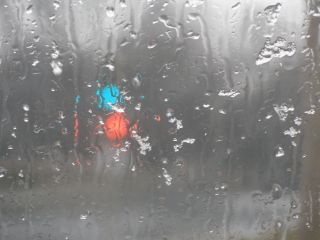April 04, 2007
Attention

Michael Goldhaber of Wired predicts that the "currency of the new economy won't be money, but attention".... a few select words which will give you an opportunity to spend yours:
Yet, ours is not truly an information economy. By definition, economics is the study of how a society uses its scarce resources. And information is not scarce - especially on the Net, where it is not only abundant, but overflowing. We are drowning in information, yet constantly increasing our generation of it. So a key question arises: Is there something else that flows through cyberspace, something that is scarce and desirable? There is. No one would put anything on the Internet without the hope of obtaining some. It's called attention. And the economy of attention - not information - is the natural economy of cyberspace.Attention has its own behavior, its own dynamics, its own consequences. An economy built on it will be different than the familiar material-based one. For the past decade I have been exploring how this new system will work. This article is a rough outline of where we are headed.
Technically, at least, information and its flow can be accurately detected and counted (in bits, bytes, and baud rates) by simple electronic devices. Attention is more mysterious, a process that can occur only in a mind, yet somehow it moves out into the world as well. If you're in a phone conversation, your attention goes to the party at the other end of the line. If you're chatting over the Net, your attention flows through it. The flow may be metaphoric, but it is a metaphor of uncommon depth. Phrases such as "pay attention" and "I can't give you my full attention right now" trip easily off our tongues - almost as if this state of awareness were a substance.
"Attention," write Thomas Mandel and Gerard Van der Leun in their 1996 book Rules of the Net, "is the hard currency of cyberspace." They're dead on. As the Net becomes an increasingly strong presence in the overall economy, the flow of attention will not only anticipate the flow of money, but eventually replace it altogether.
Though it might sound peculiar at first, attention as the basis of a new economy really does work. To begin with, attention addresses a fundamental human desire. Let's suppose you woke up one morning, well supplied with food and other material essentials, but invisible and inaudible, unable to get noticed in any way at all. At first, it could be quite amusing to spy and eavesdrop, to see what you're not supposed to. But no matter what you discovered, not being able to share your encounters with anyone would soon become torture - itself a pain you couldn't express to anyone. Living without feedback, even in the lap of luxury, would be for all but a few recluses barely living at all.
Some minimum of attention is essential. While many of us crave huge amounts of recognition, the lure is not merely fame or a place in history. It's also praise from the people around you for what you do. The Internet is an amazing expression of these desires. People log on to connect with others, gossip, debate, advise, and learn about those like or unlike themselves. They log on to exchange attention. And, not surprisingly, anyone who has spent an appreciable amount of time on the Net has advice about paying attention. In his online book Virtual Community, Howard Rheingold lays out two guidelines: "Rule Number One is to pay attention. Rule Number Two might be: Attention is a limited resource, so pay attention to where you pay attention."
This is tricky for the addled.
Esther Hicks, channeling Abraham, whom I still adore, but have hesitated to mention lately due to all the flap over "The Secret" from which she has removed herself, however sweetly, says that attention is everything, because it is "now", and "now" is the only place that anything can happen. She suggests that we pay attention to what we want, rather than what we don't want, which, to begin with, means making the best of what is, and moving our attention along from there, step by step to a better feeling place.
This is what I paid attention to today. It snowed, something that warrants attention on April 4th, for heaven's sake.

Do me a favor. Click on the "larger image" above. Stare at it for awhile and tell me if those "snowrain" globules (a term coined by Mohammad, who was chatting as we packed my groceries together-- not the globules part) on the windshield are moving v..e..ry slowly downward. Well... it made me pay attention.
As you can see I have, once again, scattered my attention to the winds, which is the reason this is a day late.
Photo note: Superfluous things which I am removing from my field (in this case the garage), so that I may pay better attention in general. This pile was awaiting recycling at the Dumptique when it was snowed upon, and made a pretty picture with many triangles for us to enjoy.
Posted by Dakota at April 4, 2007 07:14 PM